Surgeon general's social media advisory is good but it's not strong enough: Dr. Nicole Saphier
Fox News contributor Dr. Nicole Saphier weighs in on the U.S. surgeon general warning about the harms of social media for teenagers on 'The Story.'
Just weeks after Surgeon General Dr. Vivek Murthy released an advisory calling for improved social connection for Americans, a second advisory — titled "Social Media and Youth Mental Health" — warns about the potentially negative impact of social media on children and teens.
With the view that social media — despite offering some benefits — is not inherently safe for children, the 25-page advisory outlines the risks it presents.
Those risks include depression, anxiety, disordered eating, sleep problems, attention disorders, low self-esteem, feelings of exclusion and suicidal ideations, among others.
Murthy also recommends ways that policymakers, tech companies, parents, caregivers, children and teens can mitigate the risks.
SURGEON GENERAL RELEASES ADVISORY CALLING FOR IMPROVED SOCIAL CONNECTION
Potential solutions include setting stronger safety standards and restrictions, protecting children’s privacy, establishing tech-free zones in the home and blocking or reporting unwanted or unsafe content.
"Up to 95% of youth ages 13 to 17 report using a social media platform, with more than a third saying they use social media ‘almost constantly,’" Murthy wrote in the advisory.
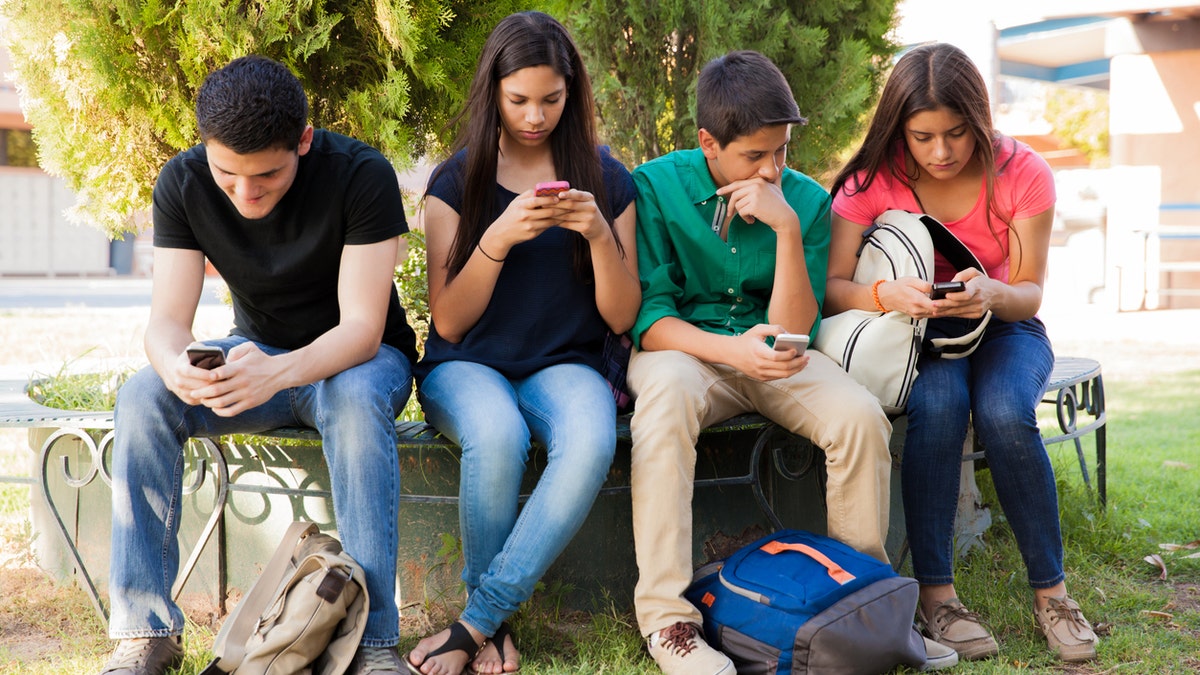
A new advisory titled "Social Media and Youth Mental Health" warns about the potentially negative impact of social media on children and teens. (iStock)
"We must acknowledge the growing body of research about potential harms, increase our collective understanding of the risks associated with social media use, and urgently take action to create safe and healthy digital environments that minimize harm and safeguard children’s and adolescents’ mental health and well-being during critical stages of development," he continued.
Dr. Zachary Ginder, a doctor of clinical psychology at Pine Siskin Consulting in Riverside, California, said he applauds the surgeon general’s advisory.
"We are unknowingly in a real-time social media experiment with life-altering consequences for our youth," he told Fox News Digital.
"Although we don’t know the long-term effects, there is mounting evidence suggesting that there are significant and immediate risks involved for youth when using social media for frequent and extended periods of time, and we cannot take a ‘wait and see’ approach to this issue."
He added, "We didn’t wait to sound the alarm for other harms to youth, such as vaping, alcohol and drug use, and this should be no different."
Dr. Ryan Sultán, a pediatric mental health physician at the Columbia University College of Physicians and Surgeons in New York City, said he sees firsthand the impact of social media on youth on a near-daily basis.
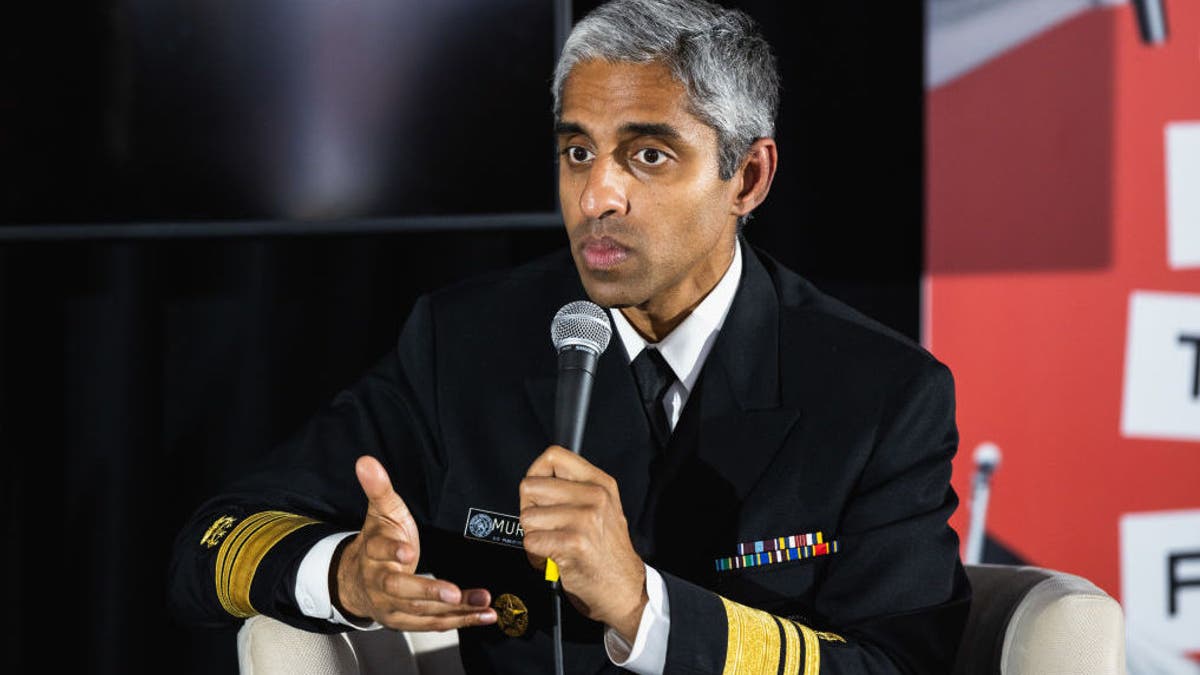
In a new advisory, Surgeon General Murthy (pictured here) recommends ways that policymakers, tech companies, parents, caregivers, children and teens can mitigate the risks of social media. (Getty Images)
"Unchecked usage can worsen self-image, promote bullying behaviors, deprive youth of sleep and have a considerable adverse impact on their overall mental health," he told Fox News Digital.
"These are not just abstract problems, but real issues that affect young people's lives and well-being every day."
Sultan echoes the surgeon general’s warning of the link between excessive social media use and poor mental health outcomes, noting that teens who spend more than three hours daily on social media face double the risk of experiencing depression and anxiety.
"An example could be Emily, a 15-year-old girl who spends significant time on social media platforms comparing her life with others," Sultan said.
"This comparison might lead to feelings of inadequacy and lower self-esteem, increasing her risk of depression."
"We are unknowingly in a real-time social media experiment with life-altering consequences for our youth."
But that’s not to say social media is all bad, he said.
"On the positive side, it provides an invaluable platform for connection, particularly for marginalized youth, who may find solace, acceptance and a sense of community on social media platforms," Sultan said.
The platforms also play a fundamental role in young people’s social lives, the doctor noted.
"Today's youth live in a world where social media isn't just a platform — it's a fundamental aspect of their interpersonal relationships and self-expression," he said.

A psychologist suggests implementing "tech-free times," which might include a rule that phones are turned off during family dinners. (iStock)
"So, rather than dismissing social media outright, we need to focus on creating a balanced social media model that serves our youth's needs without compromising their mental health."
It’s important for adults need to be realistic when it comes to restricting social media use, said Dr. Patricia Pinto-Garcia, a pediatrician and medical editor at GoodRx in Santa Monica, California.
"Digital amputation probably isn’t feasible," she told Fox News Digital.
To help parents and caregivers act on the advisory’s recommendations, Fox News Digital gathered some actionable tips and strategies from mental health experts and pediatricians.
Have open, honest conversations
In line with the advisory’s recommendations, Ginder stressed the importance of parents and caregivers having open and honest conversations with children about their relationship with social media, and how (and how much) they use it.
"Educating and regularly reinforcing what safe online practices look like in today’s environment is an essential component of a well-rounded social media use plan for children," he told Fox News Digital.
This shouldn’t just be a one-time discussion, Pinto-Garcia said.
"These conversations need to be ongoing — and ideally, they would start well before the teen years," she advised. "Talking to your child about social media should fall in the same bucket as talking to them about sex, alcohol, drugs, smoking and safe driving."
Set expectations about social media use
Children should know when it’s OK to use social media and for how long each day, Pinto-Garcia said.
Parents and caregivers should also decide at what age kids are allowed on which platforms and explain their rules for supervision.
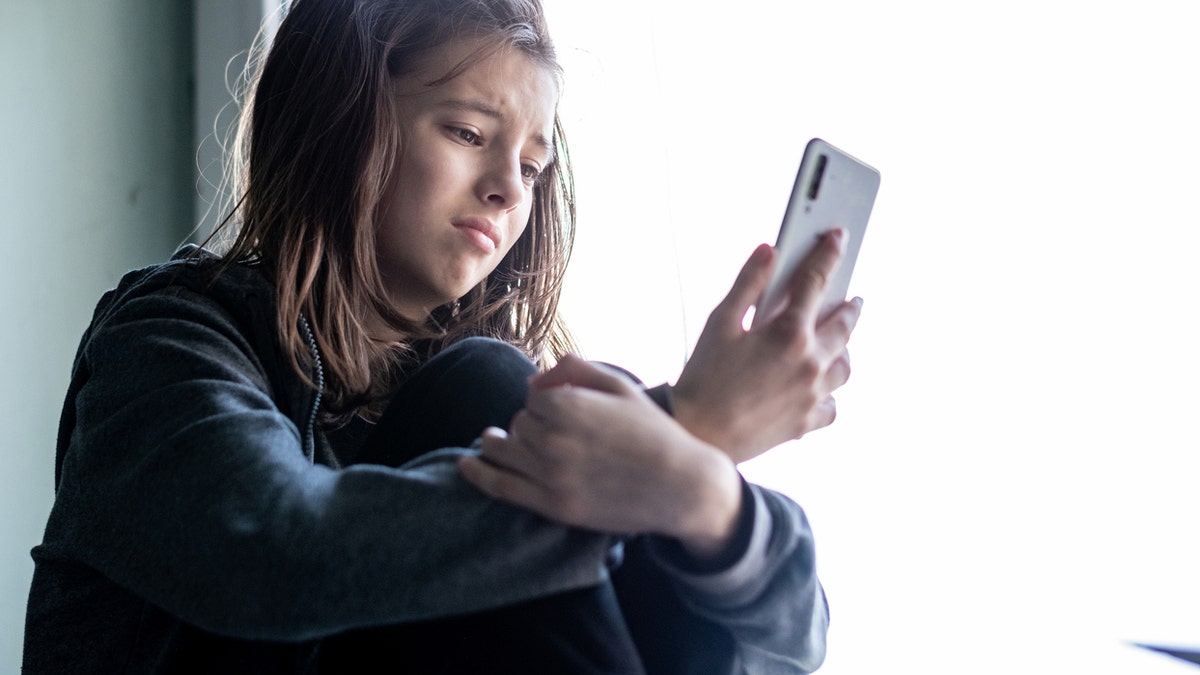
"There is mounting evidence suggesting that there are significant and immediate risks involved for youth when using social media for frequent and extended periods of time," a psychologist told Fox News Digital. (iStock)
"Stick to your expectations — whether that’s no social media after bed or final approval of all posts or regular checks of content," she said.
Ginder suggests implementing "tech-free times," for example, which can create opportunities for bonding.
This might include a rule that phones are turned off during dinner so that caregivers and their children can engage in two-way conversations.
Nighttime and bedtime should also be tech-free, the doctor suggested.
"Evidence suggests that screen time and social media use can interrupt quality sleep, which is vital for healthy development," he said.
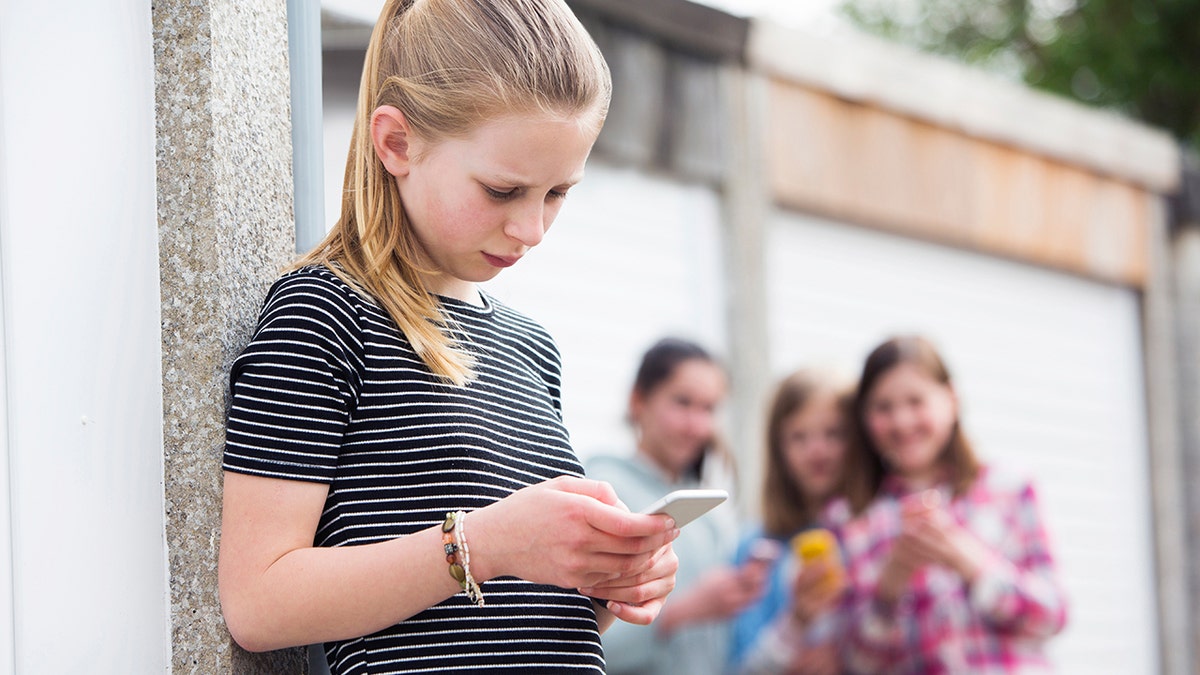
As part of setting boundaries, one pediatrician told Fox News Digital that it’s important to establish a zero-tolerance policy for bullying. (iStock)
In his own house, Ginder has his child do a "tech check-in" every evening at least one hour before bed, allowing a wind-down without any screens.
Adults also have a responsibility to model healthy social media habits, Ginder said.
"I encourage all parents to begin observing their own habits with their phone behavior, especially when they're with their children," he said.
Make time for ‘reality checks’
It’s all too easy for kids to get caught up in the comparison trap as they scroll through others’ seemingly perfect lives — which is why Pinto-Garcia calls for regular "reality checks."
She said, "Just like you need to tell a young child that what’s on TV isn’t real, you need to remind your teen that social media isn’t an accurate representation of reality, either."
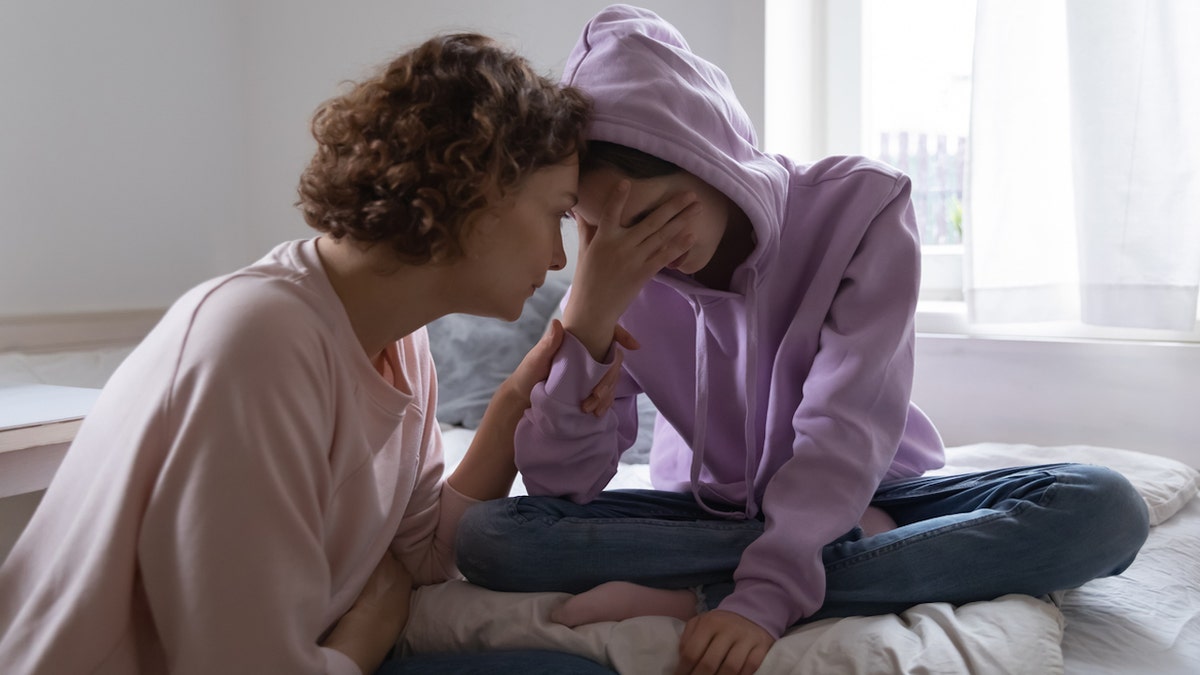
"Just like you need to tell a young child that what’s on TV isn’t real, you need to remind your teen that social media isn’t an accurate representation of reality, either," a pediatrician said. (iStock)
Parents should ask kids what they’ve seen and then help them interpret things more clearly, the doctor recommends.
"Images are often altered or filtered to give the best impression," she said.
"Remember, a teen’s brain is still developing — and [kids] still need help to process the messages they’re getting from social media."
Teach kids about social media boundaries
It’s the responsibility of parents and caregivers to teach children about social media safety, Pinto-Garcia said.
"They need to know what’s OK to post and what’s not," she said. "They need to understand the importance of protecting their privacy — and the privacy of their friends and family — and how to keep themselves safe online."
"Digital amputation probably isn’t feasible."
Parents should require children to ask for permission before posting, said the doctor.
As part of setting boundaries, it’s important to establish a zero-tolerance policy for bullying, said Pinto-Garcia.
"Teach your child about what online bullying can look like," she said. "They should know that bullying is never OK — and you should model that behavior, too."
Children who are experiencing online bullying should be made to feel comfortable coming to a parent or caregiver, Pinto-Garcia said.
"Let them know it’s nothing to be ashamed of, and that whatever is happening, you’ll help them find a solution," she said.
Use a ‘developmental lens’ for social media
Each child’s relationship with and reaction to social media will be unique, with factors such as age, maturity level and life experience coming into play, experts say.
"Part of the solution to the double-edged sword of social media in youth is to approach it with a developmental lens," Sultán of New York City told Fox News Digital.
"It involves understanding the child or adolescent's current stage of development and tailoring their social media exposure accordingly."
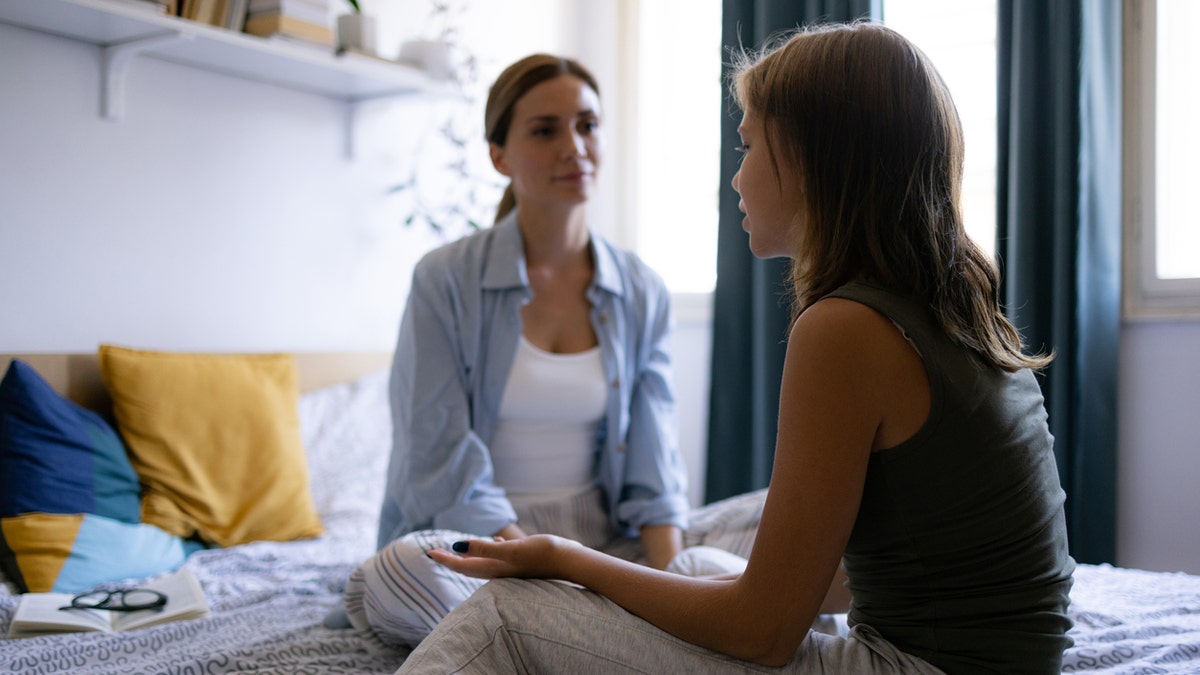
In line with the advisory’s recommendations, a psychologist stressed the importance of parents and caregivers having open and honest conversations with children about their relationship with social media. (iStock)
For instance, a 13-year-old may not have the same emotional resilience or understanding of online content as a 17-year-old, he pointed out.
"Recognizing these differences and adjusting the exposure and usage of social media based on each child's individual strengths and vulnerabilities can lead to a healthier online experience," he said.
Create a community
While social media can create a sense of connection and community for teens, it can also result in feelings of isolation and exclusion, experts say.
"We cannot take a ‘wait and see’ approach to this issue."
It’s important to supplement social media use with a "real-life" community that supports the overall health and well-being of youth, Pinto-Garcia said.
"You want a community around your family that can reinforce expectations," she said. "Partner with other parents to make sure you’re all on the same page about social media use."
CLICK HERE TO SIGN UP FOR OUR HEALTH NEWSLETTER
While questions and challenges remain, the experts agree that the surgeon general’s advisory is a step in the right direction.
"Overall, while there are evident challenges associated with social media use in children and adolescents, the surgeon general's advisory provides a robust and thoughtful roadmap toward mitigating the risks," Sultán said.
CLICK HERE TO GET THE FOX NEWS APP
"The path forward requires collective action, transparency and a commitment to prioritize the mental health of our young population."






















